This morning I attended a service for 2 soldiers from Lviv who were killed days ago. The Church of the Most Holy Apostles Peter and Paul, where these services are held, was filled with weeping women, grim-faced men, and both male and female soldiers. Here's a picture of the pre-funeral service held in the church. Here's a picture of the coffins being carried into the church for the service.Afterward I found my friend, Lise. outside the church, with tears streaming down her cheeks. I asked her to come have a coffee with me and we went to a nearby cafe, where tourists around us chatted and laughed, oblivious to what had just happened 3 blocks away. I haven't been able to find a venue to offer acupuncture at, but Lise and I are volunteering at "Make It Possible Ukraine", a non-profit that gives a variety of enrichment experiences to children who've fled the war zones with their families (mostly mothers).
I know I said yesterday that I'd give a listing of NGOs I've encountered that are doing great work here, but while exploring Lviv this morning I came across this display of soldiers killed by the Russians after surrendering at the Azovstal steel plant in Mariupol. I couldn't help but think how much they look like lots of Americans I know, men and women I'd like to have had a chance to talk to and get to know.
Lviv - Day 1I arrived in Lviv after a 17-hour bus trip from Budapest that included four hours sitting at the border. Which seemed like a long time till till I heard stories of people sitting there for 2 days.
From the flat farmland of Eastern Hungary we climbed up through the Carpathian mountains and arrived in Lviv right at the midnight curfew. The Ukrainian woman sitting next to me on the bus spoke English so I asked her about her experiences and perceptions. First, I asked how supportive Ukrainian people are of the war and the president. She replied that people complain about various things but that the overwhelming majority support both the president and the way he's handling the war, and believe this is a fight for survival, as well as freedom. She summarized by saying, "War is horrible, but some things are worse than war." I had been told the day before by someone I'd met in Budapest that the "Revolution of Dignity" in 2014 that provoked the first Russian invasion a few months later had been backed and financed by the CIA, so I asked her about that. She responded that the Revolution of Dignity had been a response to newly-elected prime minister Yanukovich breaking promises to sign an agreement with the EU and open Ukraine more to the world. Instead he canceled the agreement and tried to bind Ukraine more tightly to Russia. According to this woman he also immediately began enriching himself, his friends and his family from public coffers, leading to $70 billion being stolen from the Ukrainian government and sent abroad. She said it was the final straw when mostly young people went to the streets to protest and security forces loyal to Yanukovich killed dozens of them. At that point hundreds of thousands of people from all sides of the political spectrum flooded the streets and Yanukovich fled to Russia. I told her I'd heard a lot about corruption in Ukraine and she said :"We inherited a corruption problem from being ruled by a corrupt Russian system. That problem is not resolved, but we've been working on it and we'll continue working." I asked her about the relationship of the Ukrainian people to the Russian people and she said: "I'm a native Russian speaker. I have lots of family members in Russia and we speak all the time and they tell me they love me. But there are many things they cannot say or the police will knock on their door. And other people I know have family in Russia who no longer talk to them and blame Ukraine for starting this war. We have to teach our children that we need to be strong and to love and defend our country, but that we should try not to hate the Russians. But so many of us have suffered from this war that many people do." Before we arrived in Lviv she helped me install the air raid app on my phone that notifies people here that an attack has been launched on a specific region and that they need to take shelter. A few minutes before we reached our destination a siren went off and the whole bus went silent. It took a few moments for me to realize that the sound was coming from my phone. We realized that the app was set for notifications in the eastern part of the country and she re-set it for the Lviv region and it went silent. Tomorrow I'll tell you about some of the people I've met in organizations that are working to help children, refugees and soldiers and to strengthen and heal their society. In the meantime, here's a quote from this* Eliot Cohen article published recently in The Atlantic that sums up what I've heard from most of the people here that I've spoken to: (Western/American officials) "forget what it means to have a fifth of your country occupied, or to know that a far bigger country is attempting, every night, to smash your power plants, blockade your ports, and destroy your crops. They are not holding in the forefront of their minds obliterated towns and mass graves. They do not know what it is to welcome back exchanged prisoners of war who have been castrated. Or to mourn old men and women murdered, or younger men and women tortured and raped. Or to worry frantically about thousands of children kidnapped. They forget that while a Western official’s sleep may be interrupted by a phone call or an alarm clock, a Ukrainian official’s sleep is more likely (and more often) interrupted by a siren or the crash of a missile slamming into an apartment block. *https://www.theatlantic.com/international/archive/2023/08/ukraine-western-diplomacy/674920/?utm_source=copy-link&utm_medium=social&utm_campaign=share 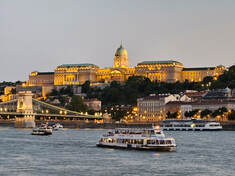 Resting a few days in Budapest and orienting myself before taking a bus to Ukraine on Sunday. Sightseeing and talking with friends has been fascinating and eye-opening. 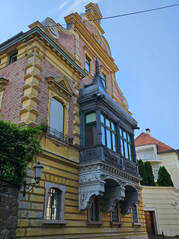 Beauty---and tourists---are everywhere in most of the parts of Budapest that I have seen. Early 20th century houses mingle with massive, imperial structures on the bluffs overlooking the Danube that seem to recall the days of the Austro-Hungarian empire. But talking with friends here I get the impression that Hungary, like the U.S., is increasingly polarized, with people on both sides of the Conservative/Liberal divide feeling under threat. The painful, disturbing past seems much more present here than I think it does for most people in the U.S., with the history of domination by other European powers memorialized in some of the monuments. My impression is that this consciousness creates an unsettled relationship with the past: part "Make Hungary Great Again," symbolized by the the Prime Minister, Viktor Orbán and his far-right policies (and architecture) but also part deep unease at the ways that that mentality has played out in the past. I learned, for instance, that the Hungarian government allied itself with the Nazis in WWII, after having had huge swathes of its territory taken after WWI. 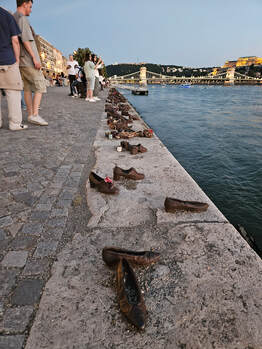 Two days ago a friend brought me to a monument here on the eastern bank of the Danube, erected to the thousands of Jewish and Roma (Gypsy) people who were rounded up by Hungarian fascists allied with the Nazis in 1944-45 and brought to the river bank. Here they were bayoneted and pushed into the river, where the current carried away their bodies. Beforehand they were forced to take off their shoes which were later sold by members of the militia who killed them. The monument attached shoes made of iron to the marble blocks of the embankment. In the past few years some of the shoes have been stolen and graffiti has appeared on some monuments to Roma victims, saying "Extinction of the Roma = Extinction of Crime." Yesterday afternoon I was introduced to a Hungarian man and Ukrainian woman who very recently left Odessa as the bombing there intensified. It was awful to hear the woman's description of the terror she and her children experienced during the missile attacks. But what stood out most for me was the the man's description of the sense of fear and powerlessness he experienced just in traveling between Odessa and Budapest, passing through ex-Soviet countries. Whereas, in my experience, most (white) Americans have the impression that officials in the U.S. are there to serve us, I gather that many of the officials in these countries have a "post-Soviet" mentality of using their position to demonstrate the power they have over people who have to deal with them. His description of the fear and uncertainty evoked by officials like this who have just taken your passport and then sometimes take hours to return it as you sit on the border, waiting, was a good reminder to me of how much and how often I take the safety and security of being a white, middle class man in Bend, Oregon and the U.S. for granted.
By a curious coincidence, on my flight to Budapest I came across this short story by James Baldwin, reprinted in the Atlantic from 1960, that reminds me how much the sense of insecurity and fear expressed by this man is present in the lives of most African-Americans in the U.S. It served as a reminder of the need for American humility and a sense of how much work we all still have to do if we actually believe in "liberty and justice for all," not as a political slogan, but as an acknowledgment that we're all in this together, and that none of us is really free till all of us are free. Travel always seems to involve a journey not only from one location to another, but from the familiar to some version of the unknown...from our default mode to something that's outside of our day-to-day habitual way of being. And that challenges us but also offers us a chance to wake up a little from our habitual preoccupations....
I'm even more aware of this as I sit in the Seattle airport, waiting for a flight to Frankfurt, from which I'll fly to Budapest, in the hope of then taking a bus to Lviv in western Ukraine. Yesterday's news reported that the Ukrainians have begun re-purposing cold-war anti-aircraft missiles and are now shooting them at cities in Russia itself, a hundred miles behind the battle lines. It remains to be seen how the Russians will retaliate---whether they now begin to intensify their bombing of Ukrainian cities that have so far experienced less drone and missile attacks. In this past weekend, in (relatively) peaceful, comfortable Oregon, I was backpacking with my friend, George, in the Drift Creek Wilderness in the Coast Range, supposedly the largest stand of Old Growth trees in Oregon. We were almost the only people there and the stillness and beauty were breathtaking. I watched bright orange crayfish move slowly across the bottom of Drift Creek and heard owls calling in the night and early morning among the huge Doug Firs and Western Cedars. Now, sitting in the airport I feel myself moving further and further from that relatively untouched landscape and life, toward a landscape and people that have been devastated by some of the worst that humans can do to each other (though I'm aware that there's a lot that goes on that I don't know about and that doesn't even get reported in the bubble I live in). This movement, challenge, learning, and---hopefully---slight amount of waking up are what I hope to pay attention to and report back to you over the course of this trip. Some of you have asked me to let you know if I encounter nonprofit organizations that are doing important work on the ground in Ukraine so you can make donations, and I hope to be able to do that, too. I hope you're all well and able to feel grateful for the (mostly) open and (mostly) peaceful country we live in. More to come... |
Workshops & Events
Bend Community Healing offers workshops and events open to the community throughout the year. Archives
September 2023
Categories |
|
|
Clinic Hours
Acupuncture Monday, Wednesday: 9AM - 12:30PM ; 2 - 6PM Friday: 9AM - 12:30PM Zero Balancing: Tuesdays: Noon - 6PM |

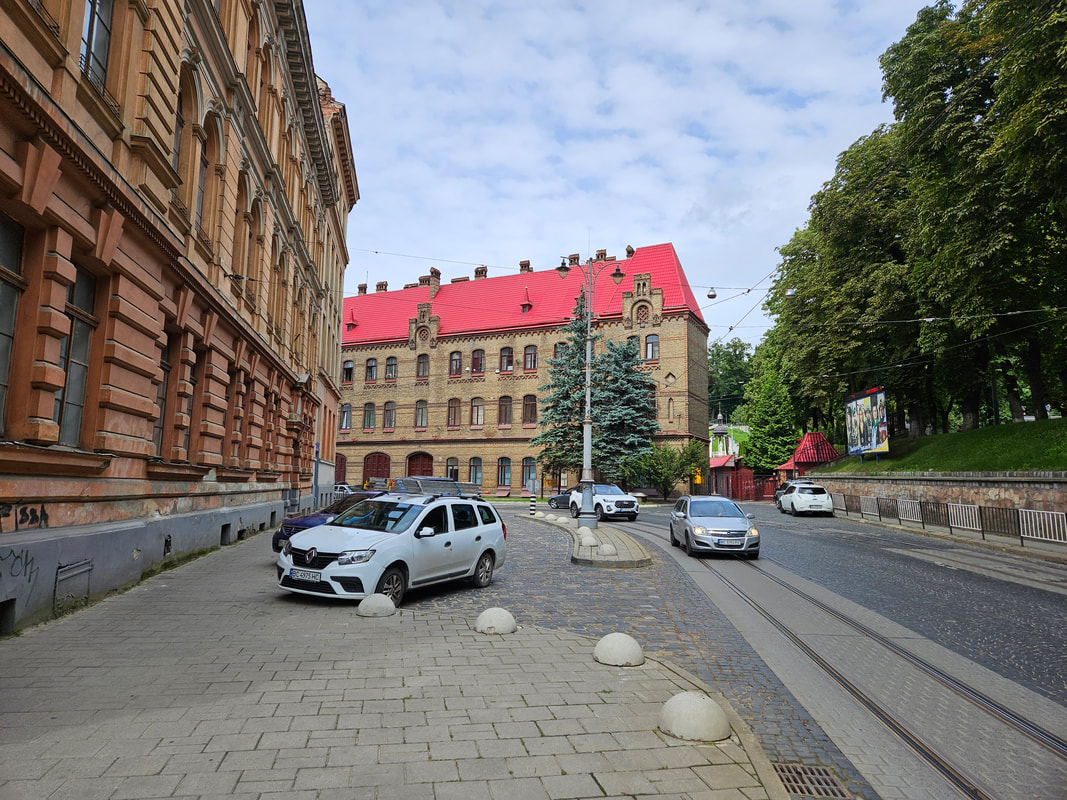
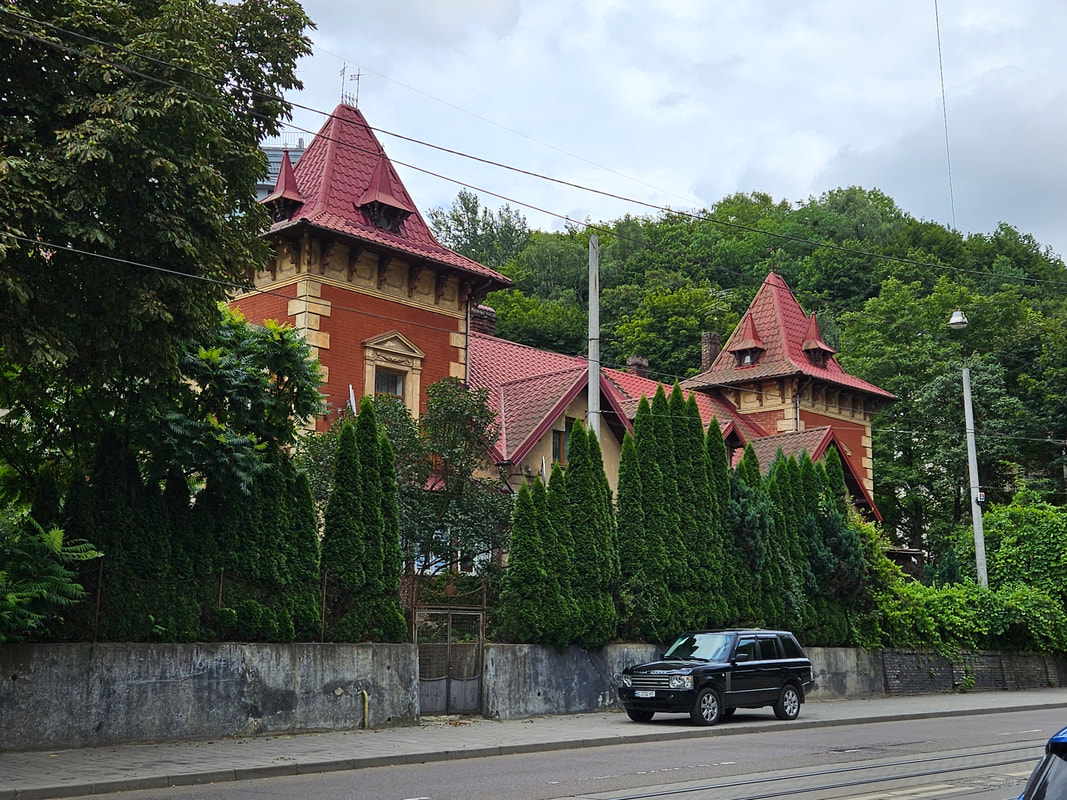
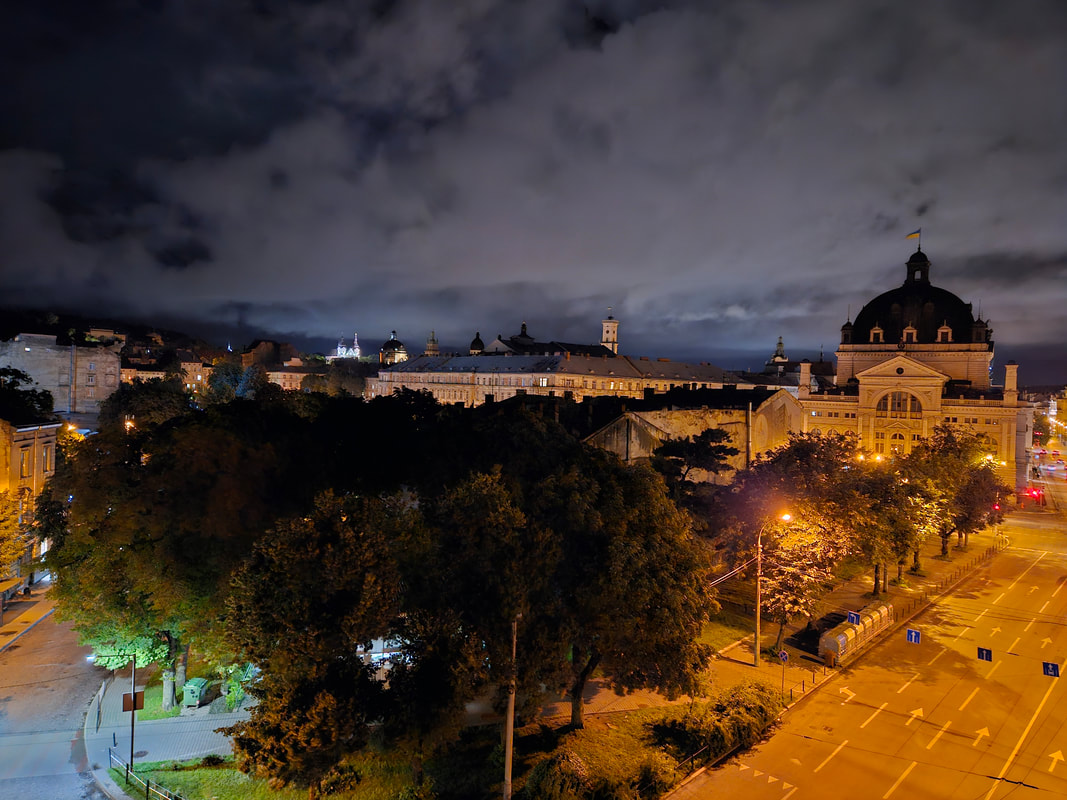
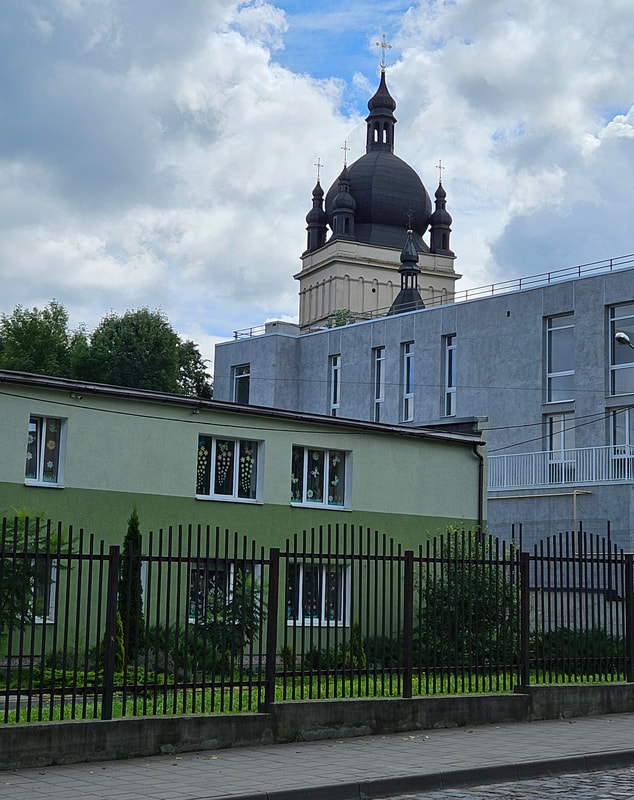
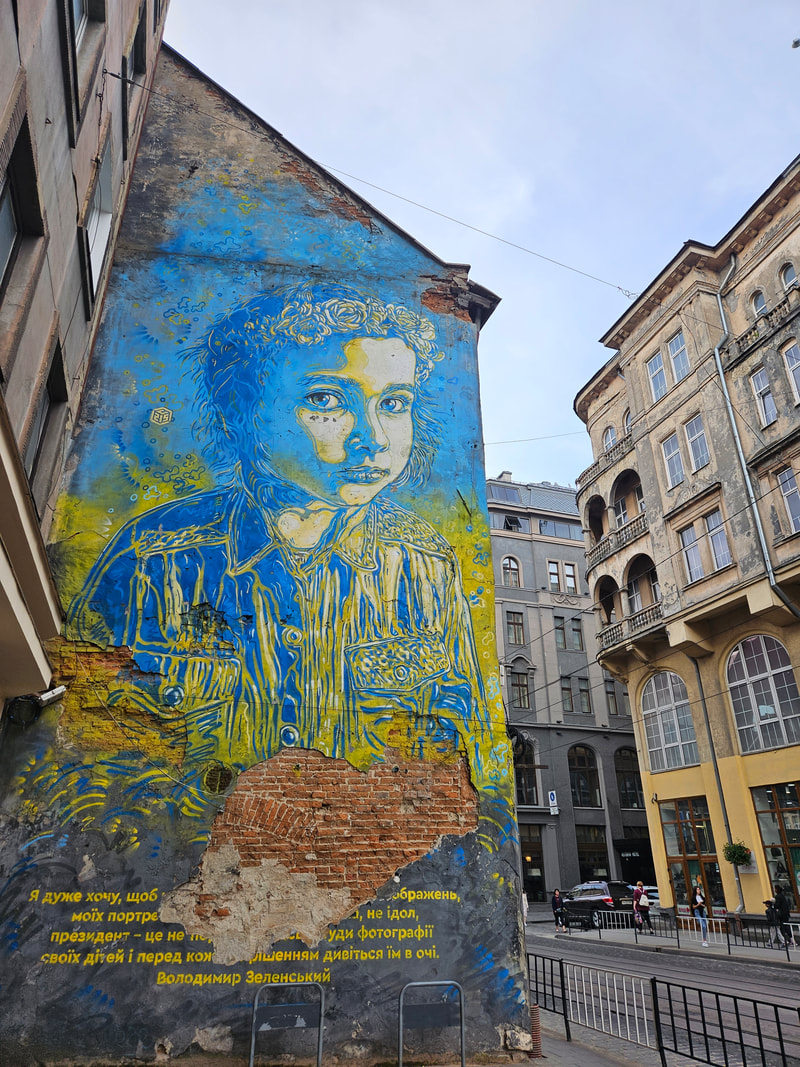
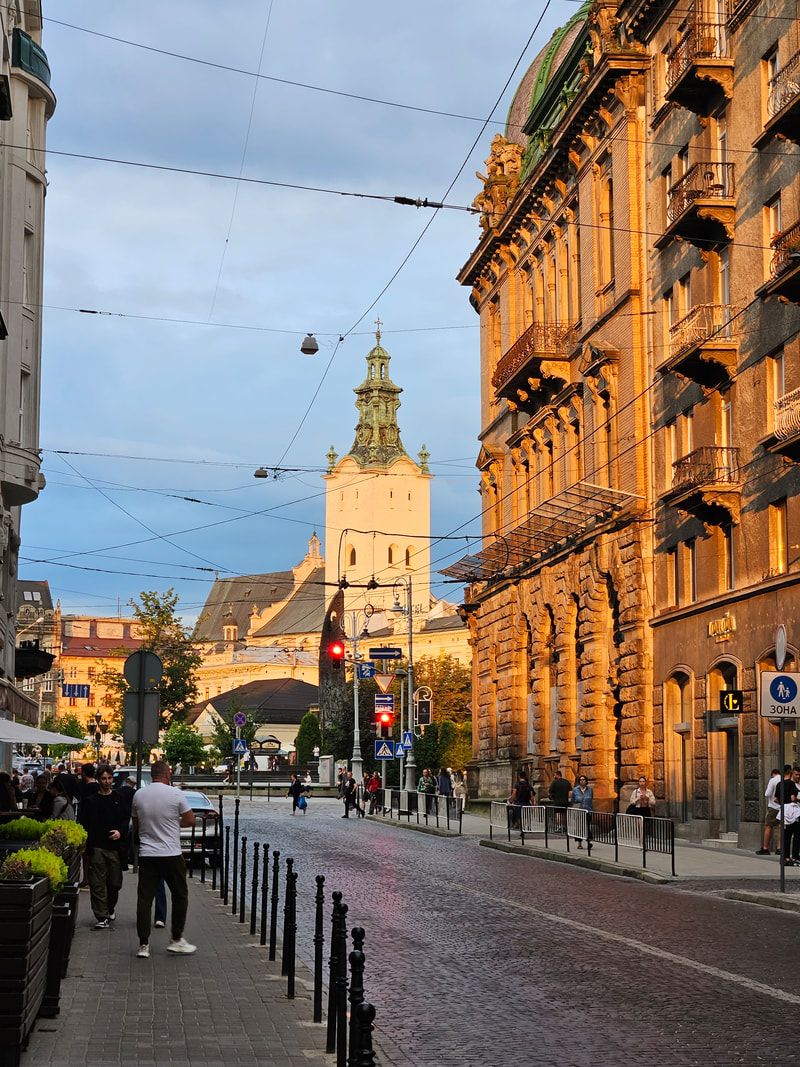
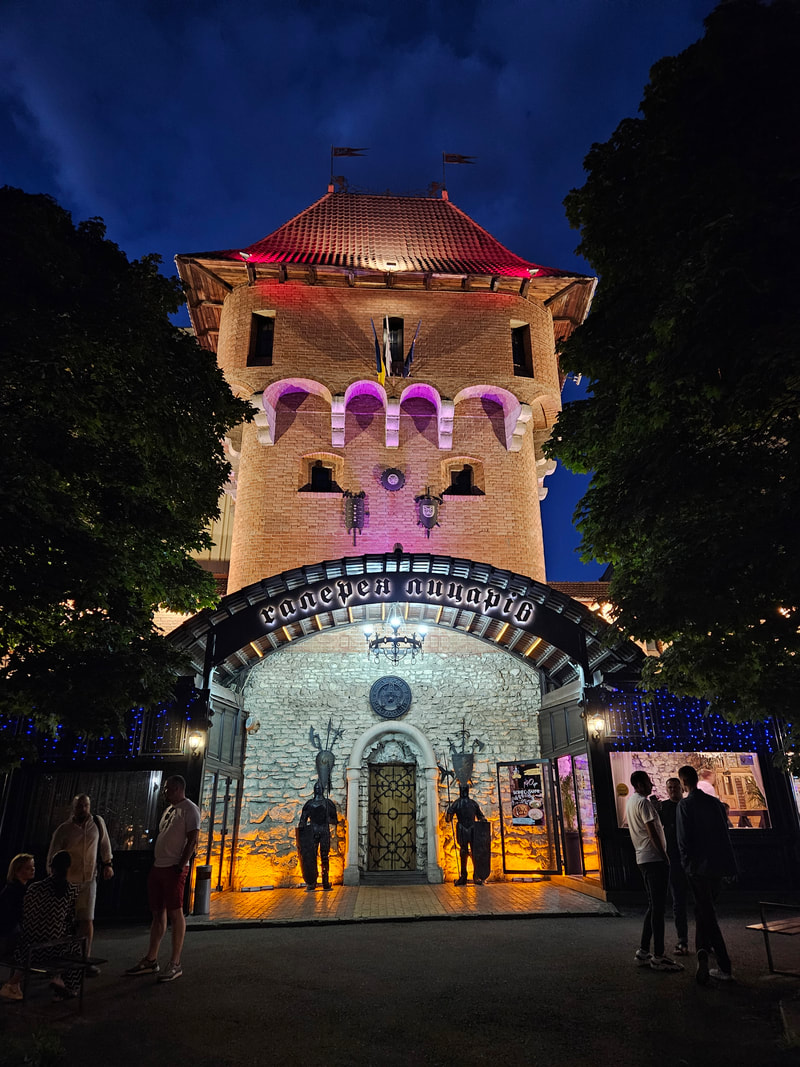
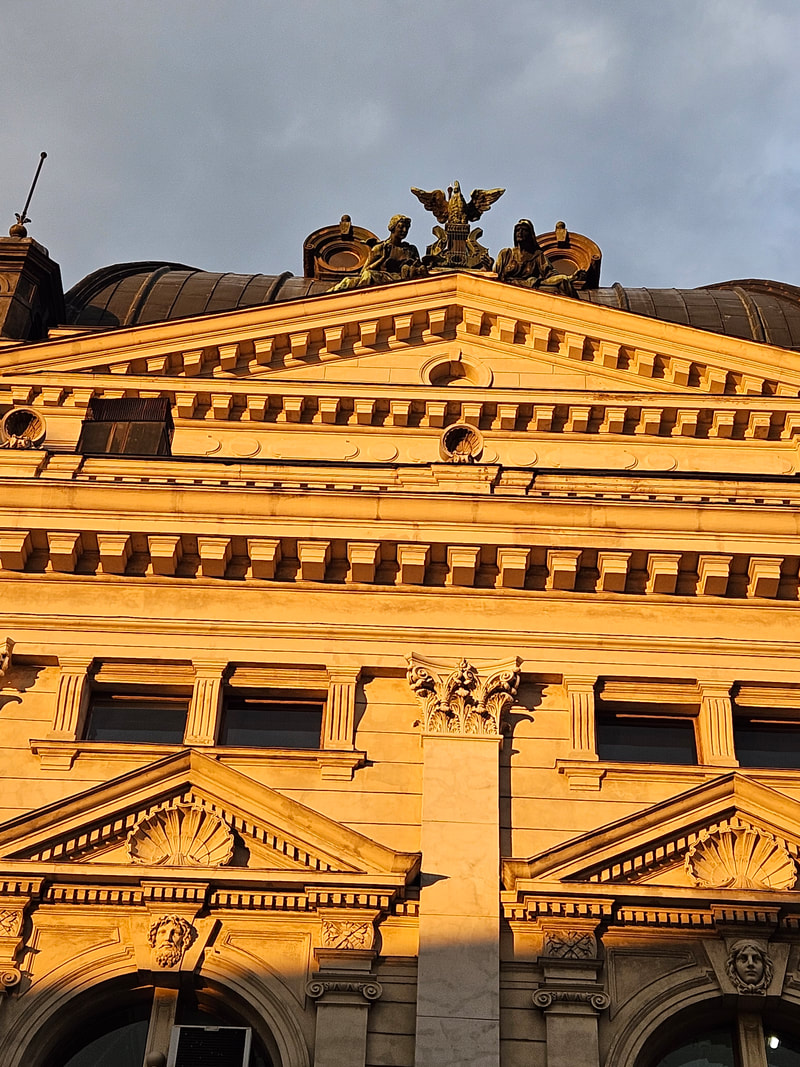
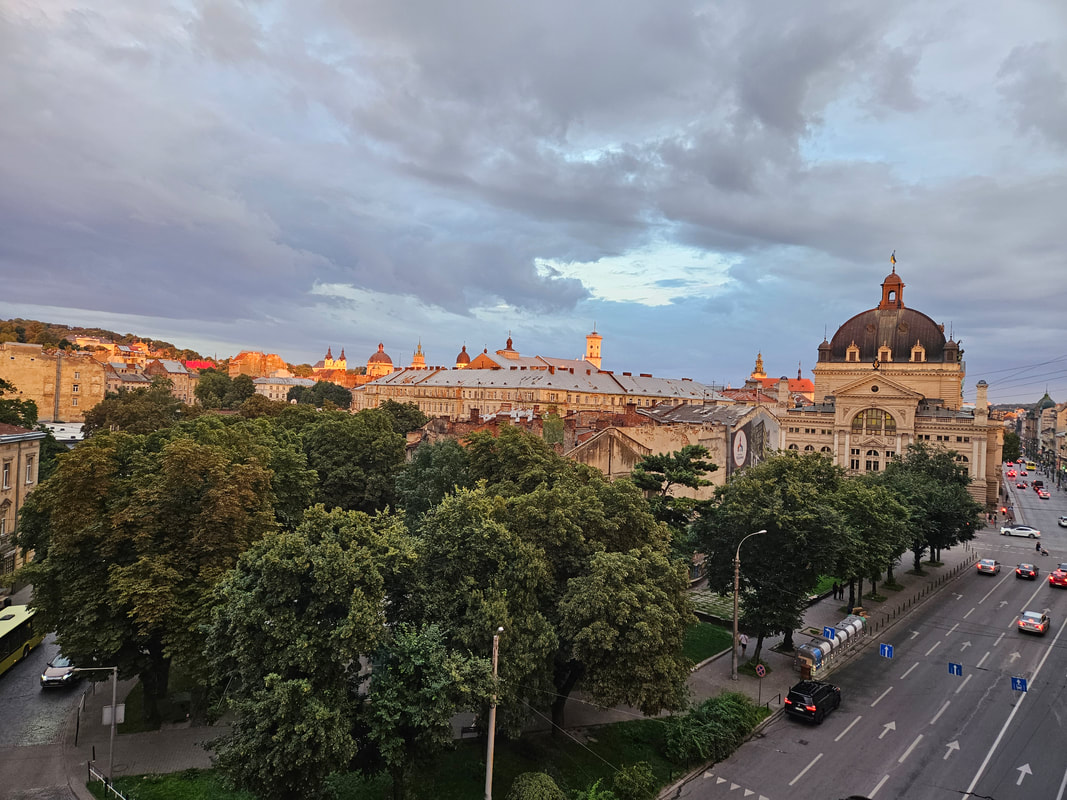
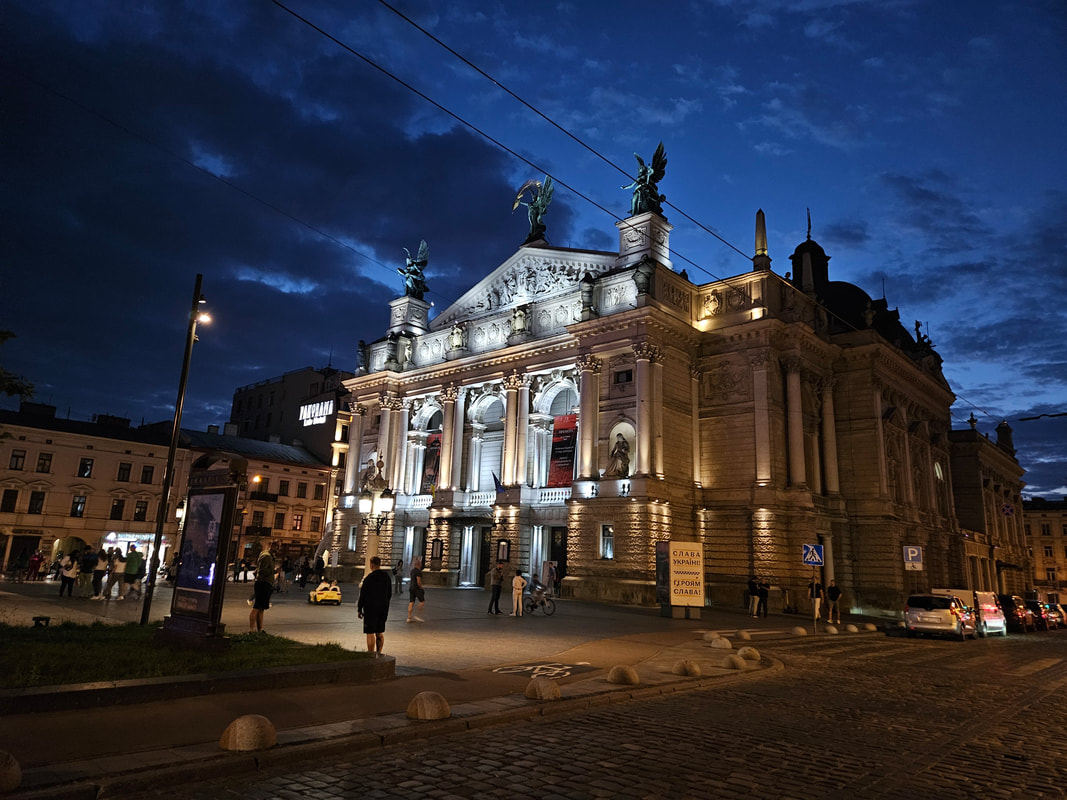
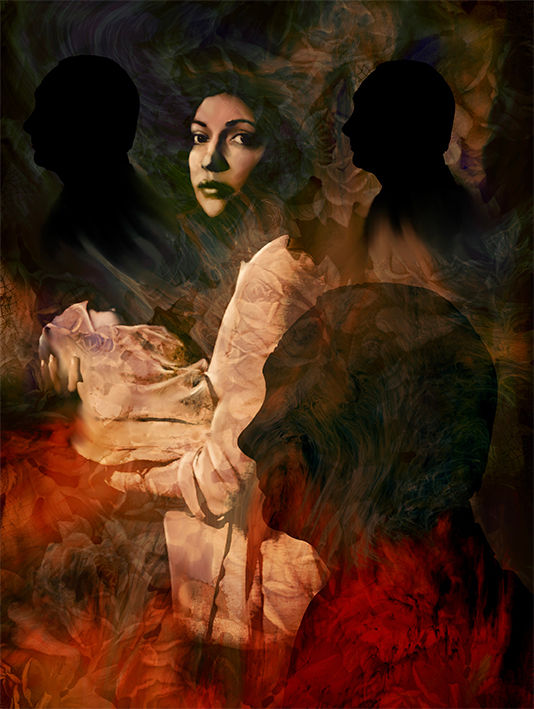
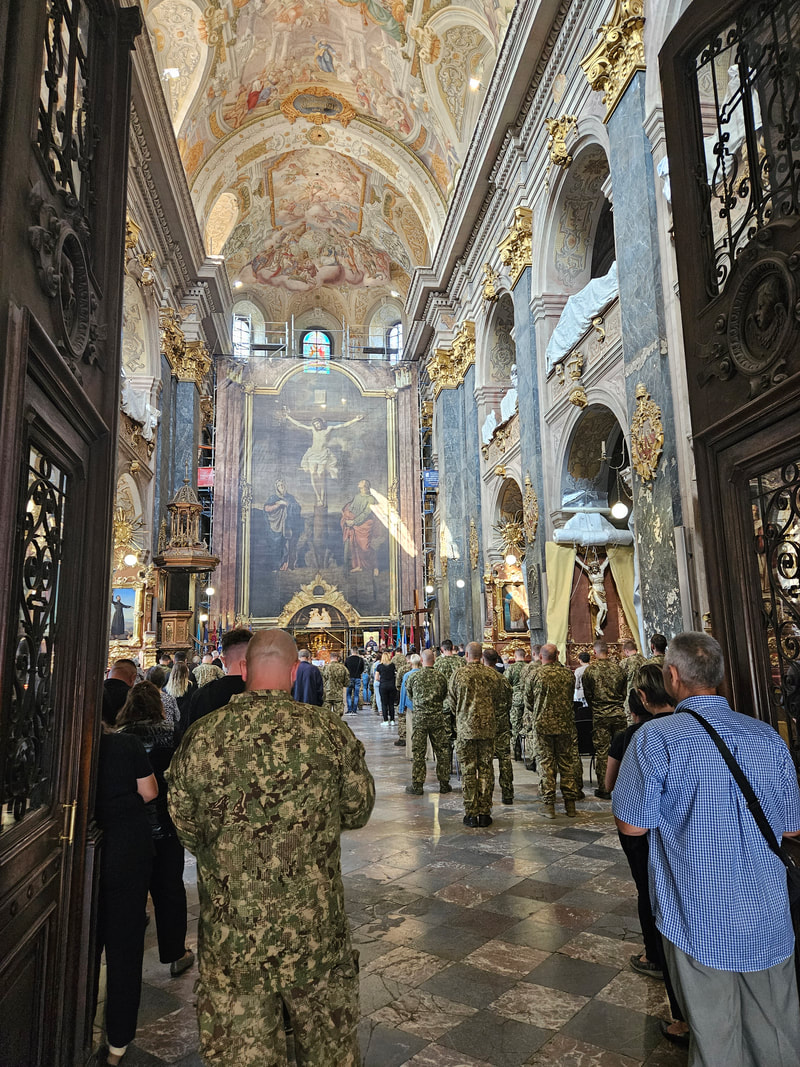
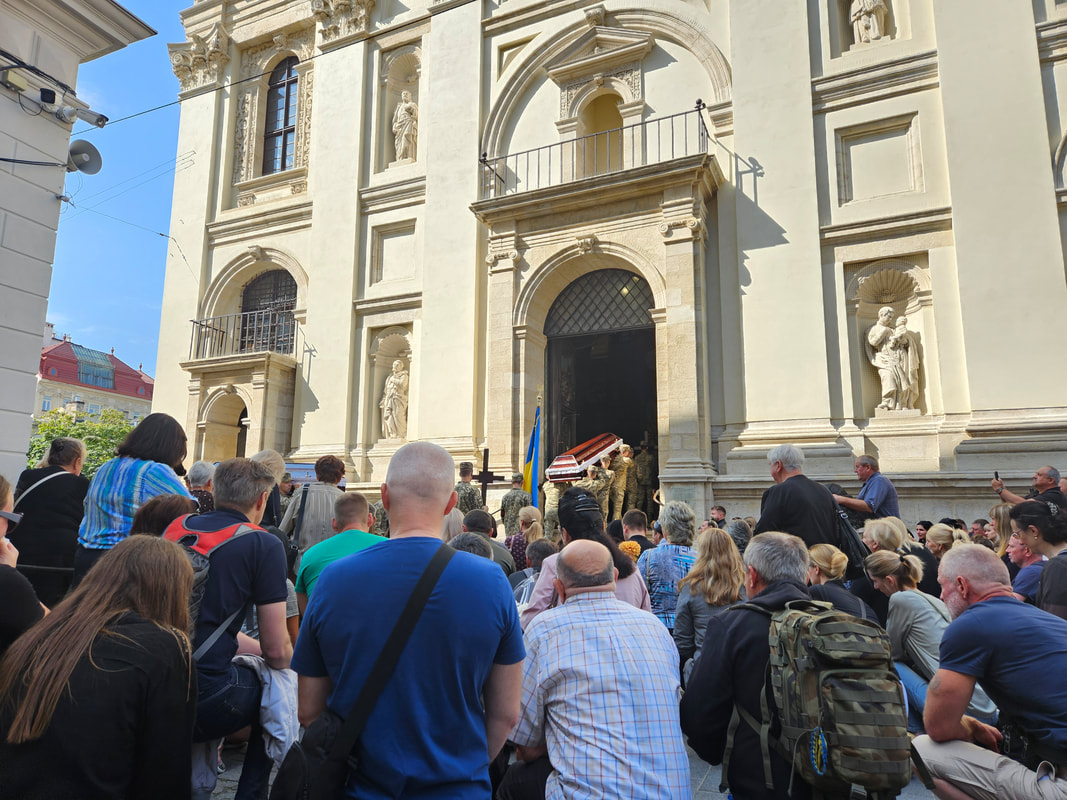
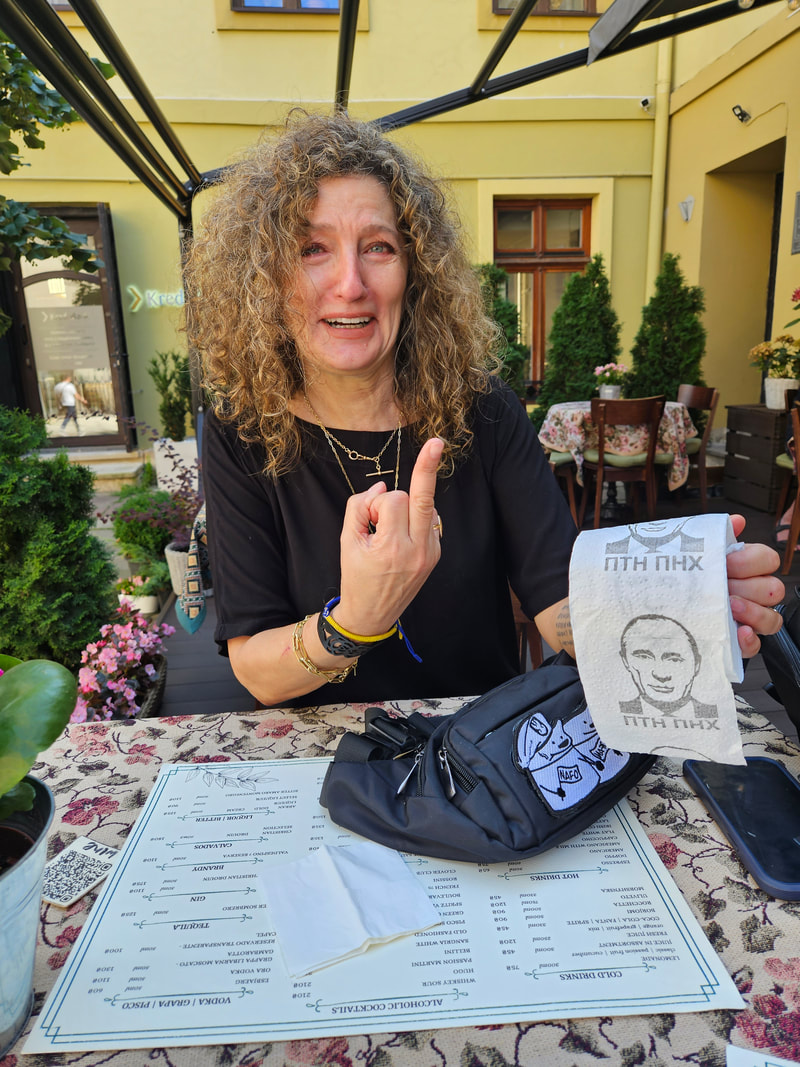
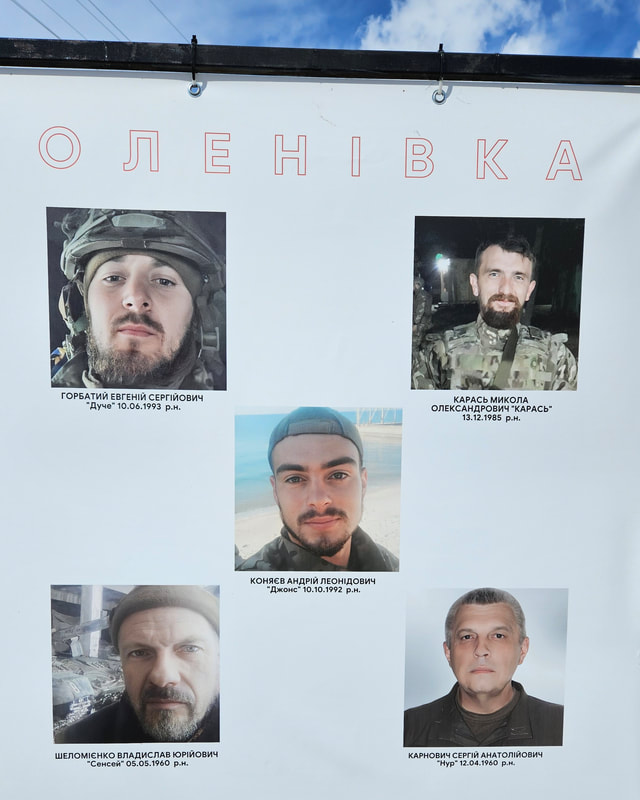
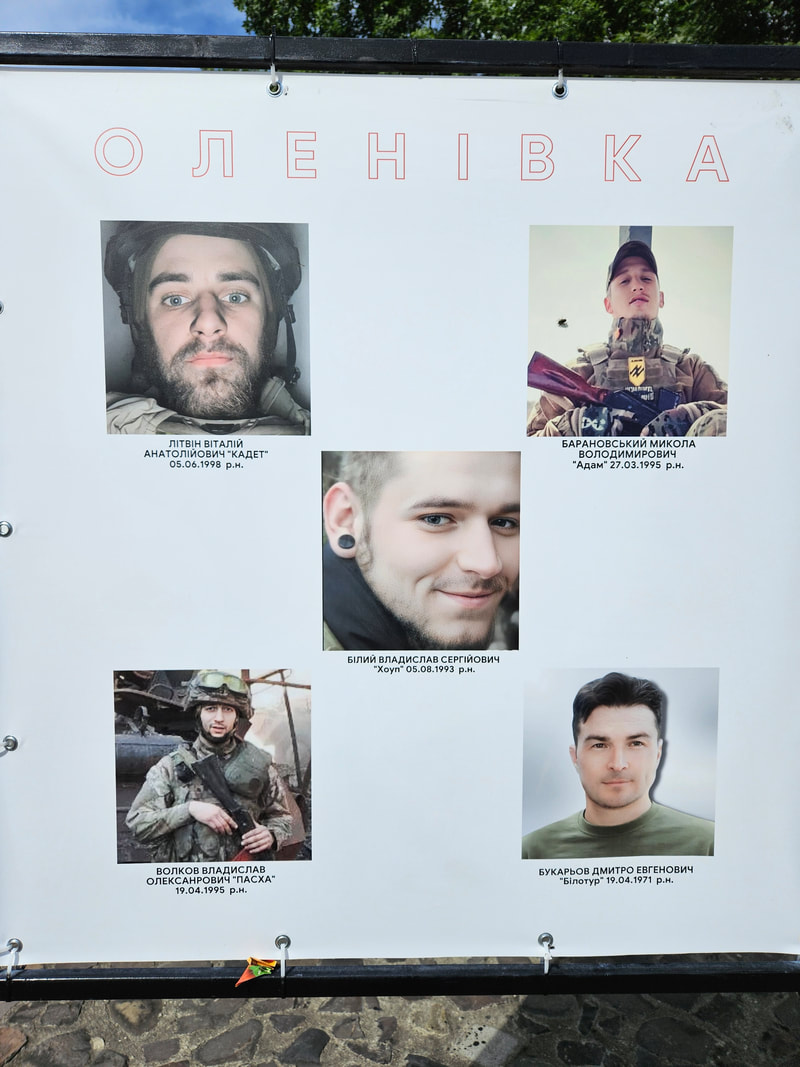
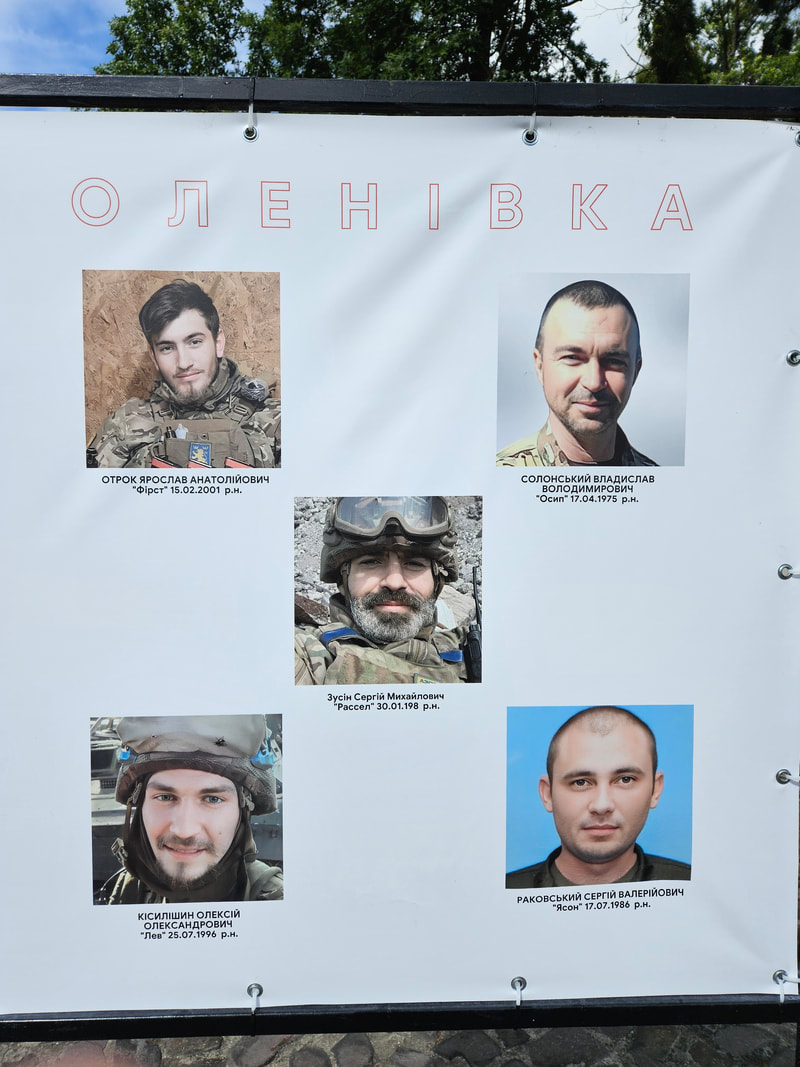
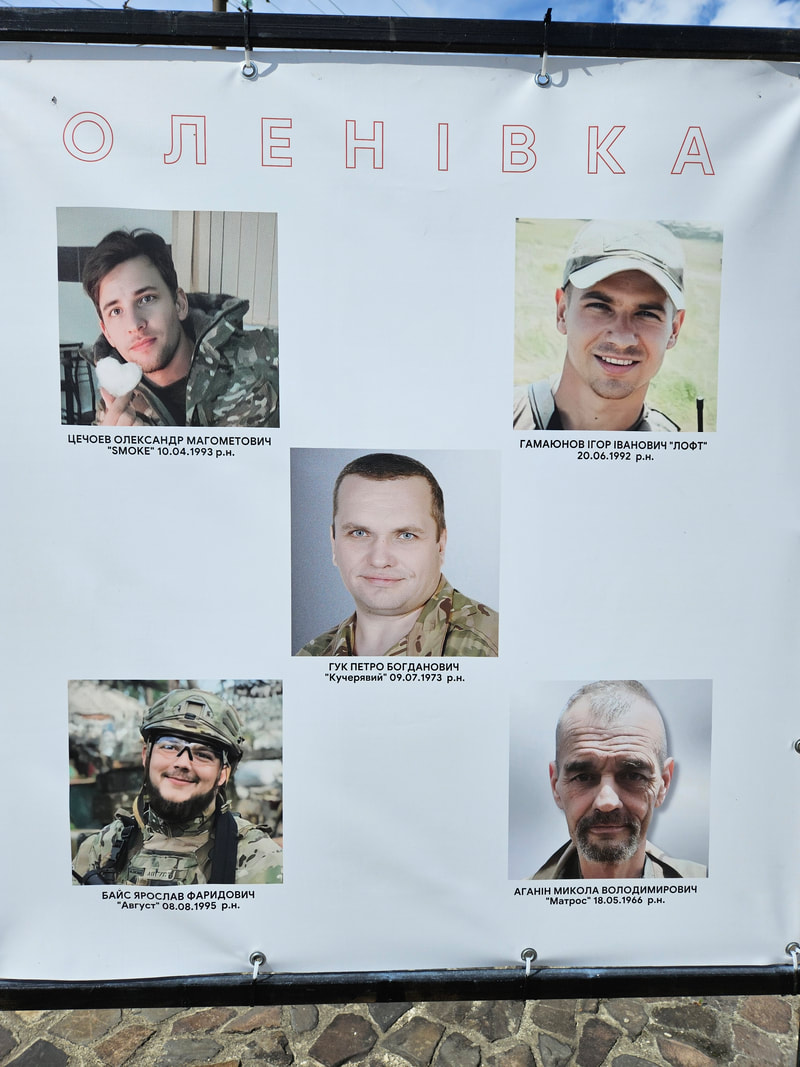
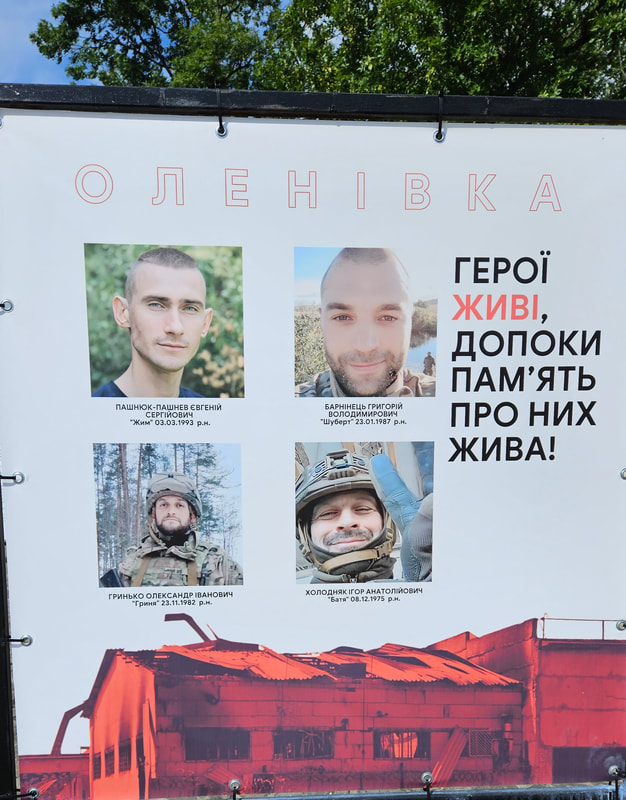
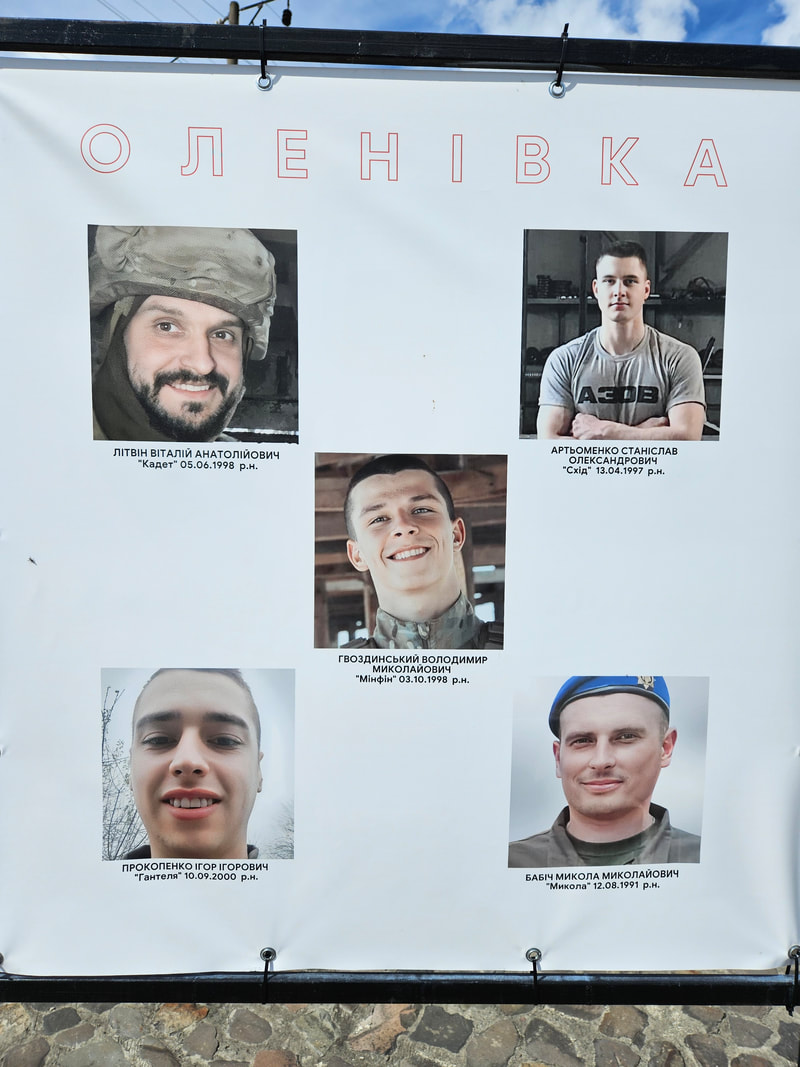
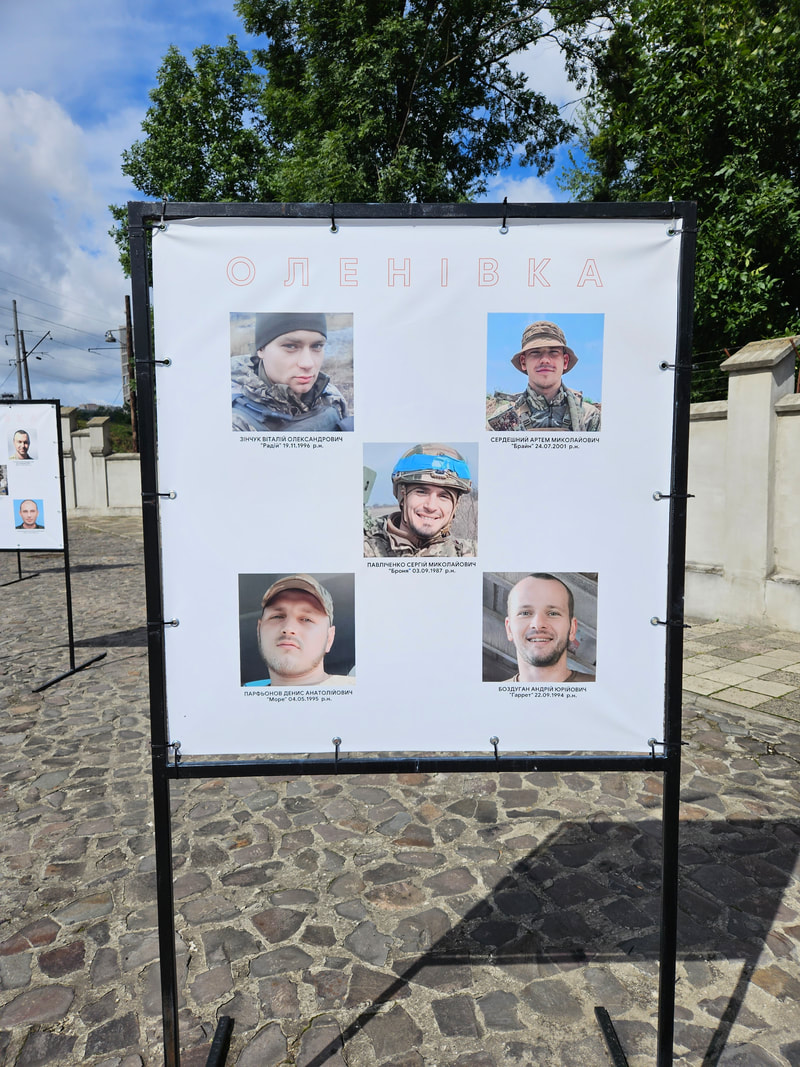
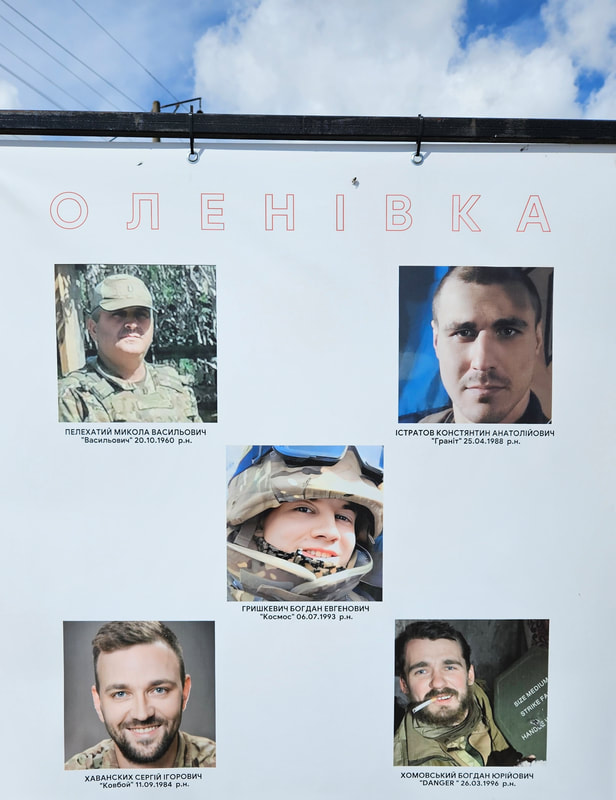
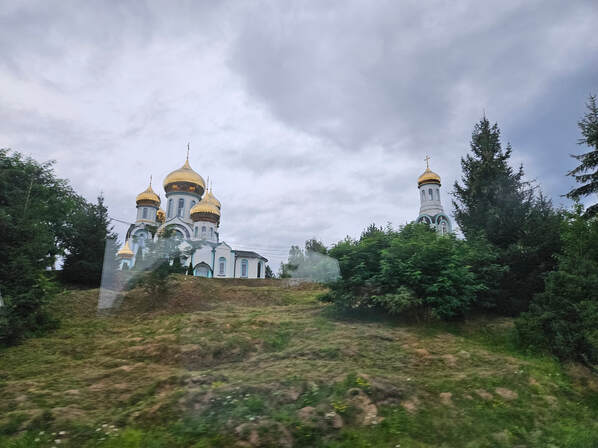
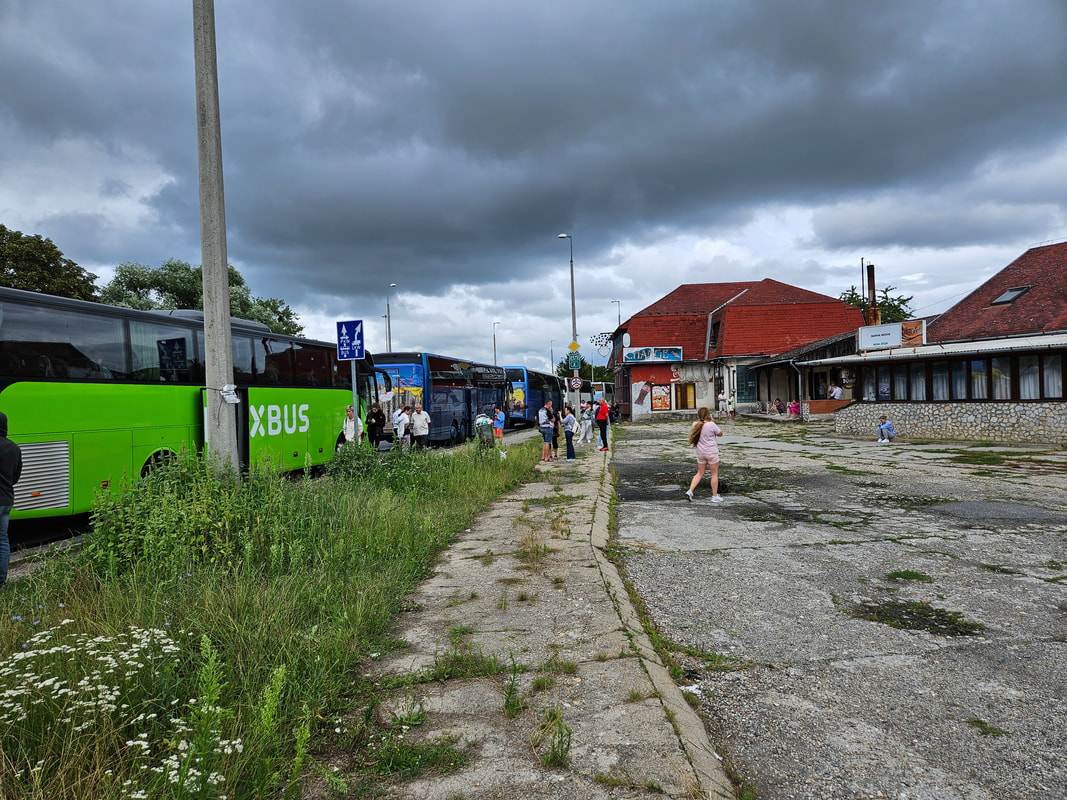
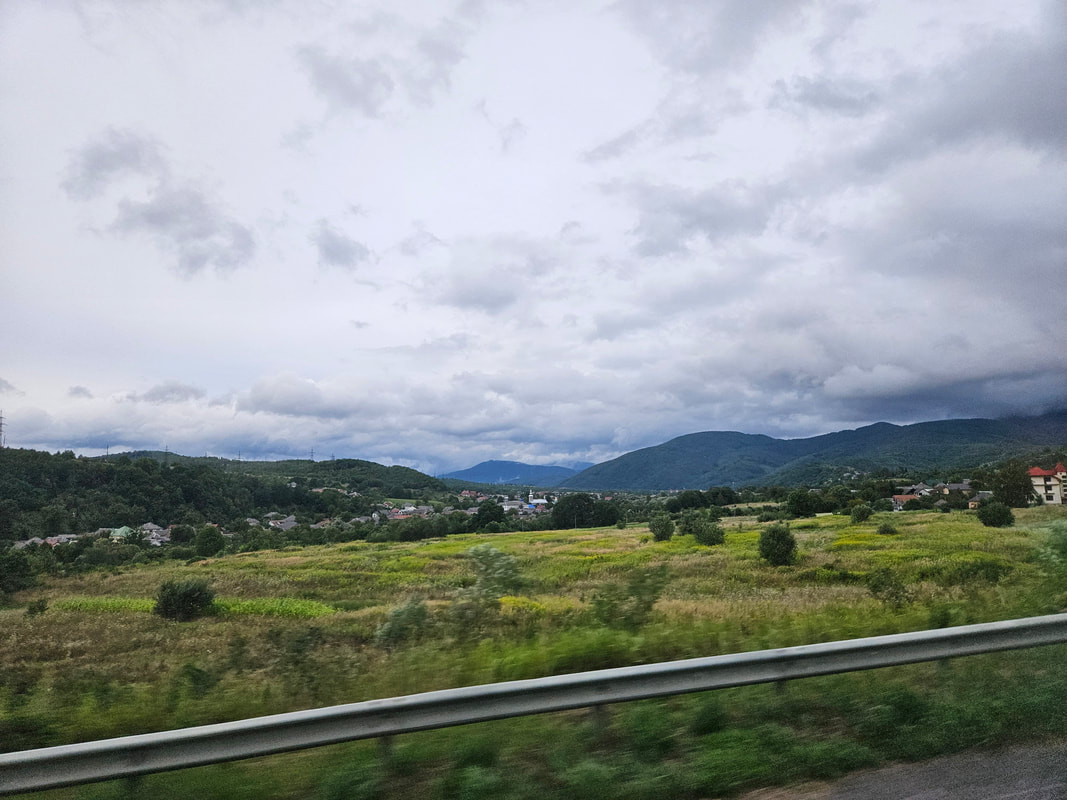
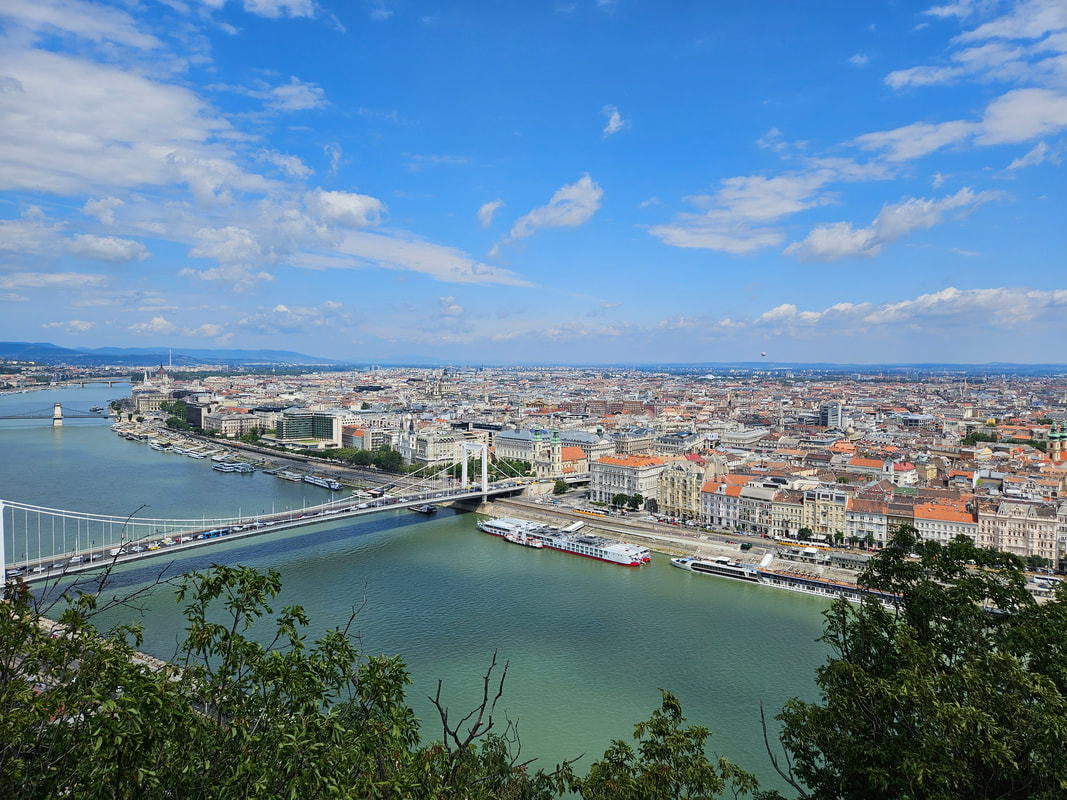
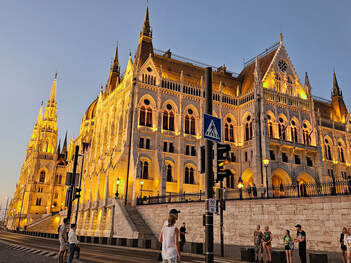
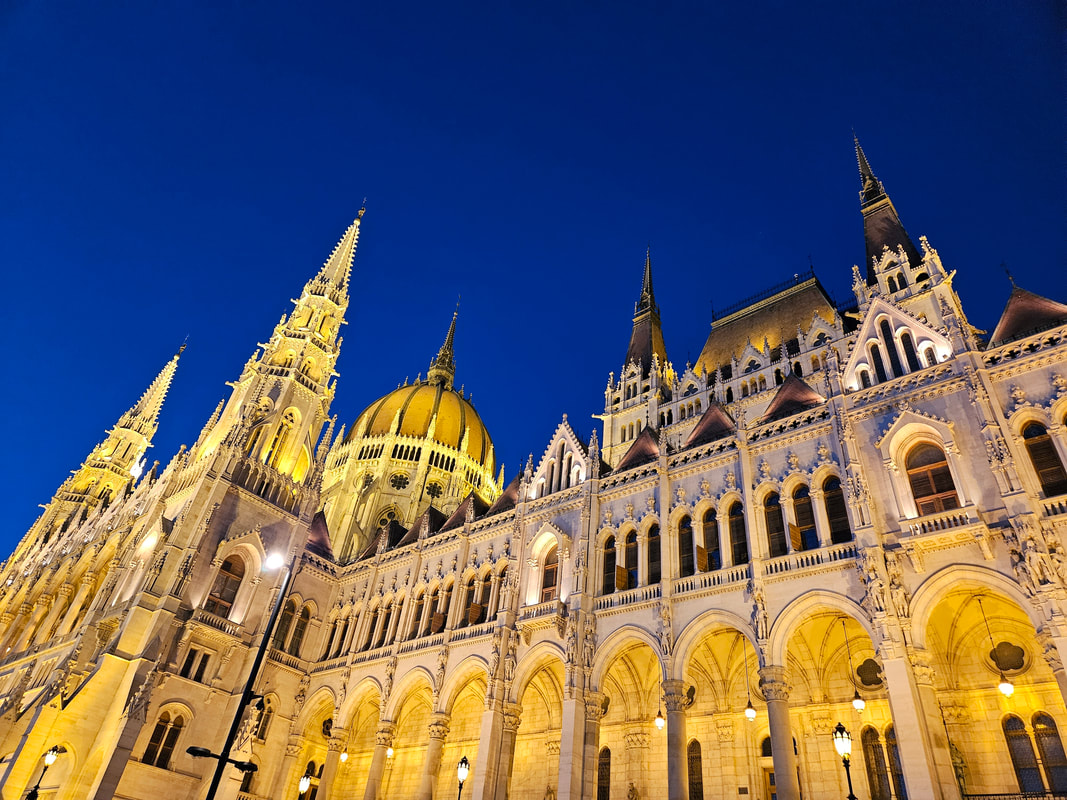


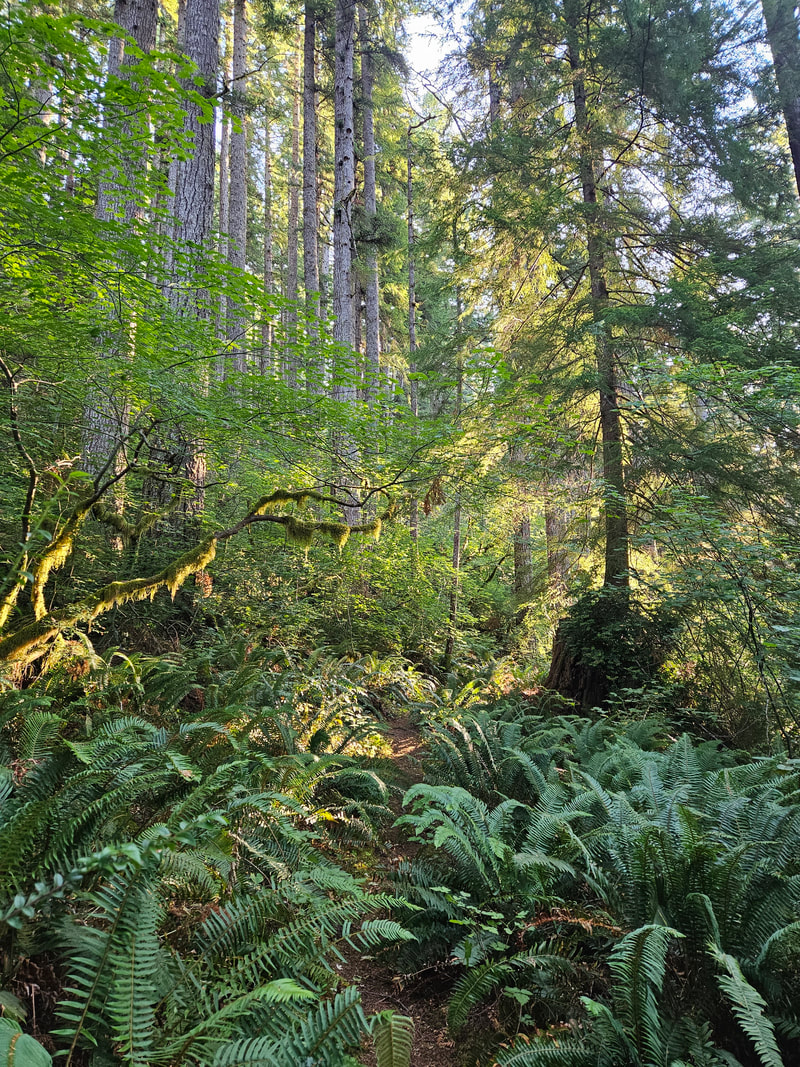

 RSS Feed
RSS Feed
